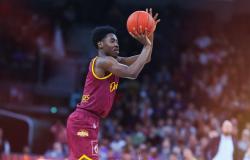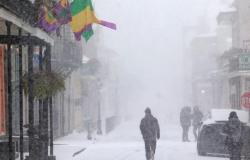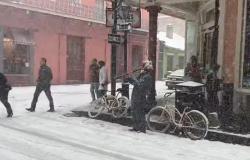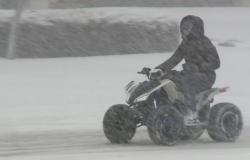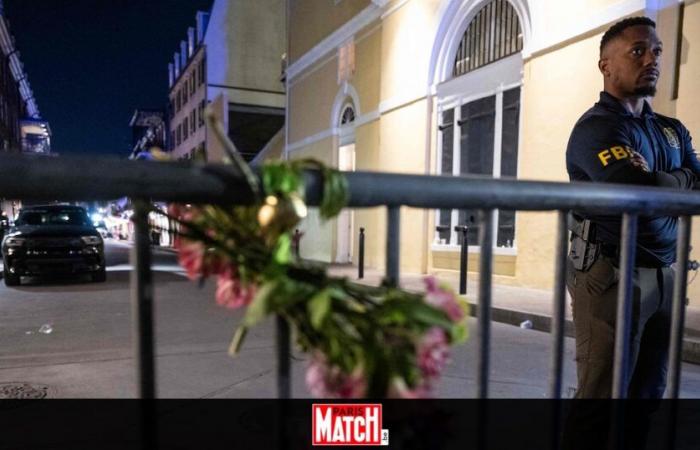
Around 3:15 a.m. (09:15 a.m. GMT) on Wednesday, driving a pick-up, he drove into the crowd wandering in the “Vieux Carré”, the French Quarter, trying to “crush as many people as he could.” “, indicated on Wednesday morning a local police chief, Anne Kirkpatrick.
“He was fiercely determined to cause carnage,” insisted the official, calling the man a “terrorist”.
After knocking down, killing and injuring dozens of bystanders, the man was shot dead in a shootout with police. Two police officers were injured.
Referring to a “despicable attack”, US President Joe Biden addressed the country early in the evening. He stressed that the suspect, shot dead by the police, had “published videos on social networks indicating that he was inspired by the Islamic State” and that he had a “desire to kill”.
Investigators said they were working “to determine the individual’s possible associations and affiliations with terrorist organizations” and claimed to be looking for accomplices.
Searches and raids are underway in New Orleans and other states, with FBI special agent Alethea Duncan emphasizing that authorities “do not believe Jabbar is solely responsible.”
Earlier, the FBI field office in Houston (Texas) indicated that it was carrying out activities “related” to the New Orleans attack.
“A coincidence”?
President Joe Biden said authorities were investigating whether there was a “connection” between the attack in New Orleans and the explosion of a Tesla Cybertruck outside a Trump hotel in Las Vegas that caused a dead.
In both incidents, the vehicles involved were rented through the ride-sharing app Turo.
Las Vegas sheriff says it’s a ‘coincidence’ […] that we need to continue to review.” A spokesperson for the app, used by millions of people in the United States, said it was working with law enforcement.
-“We do not believe that the two clients had a criminal past that would have identified them as a security threat,” the group’s spokesperson told AFP.
The attack comes less than three weeks before the transfer of power between Democratic President Joe Biden and his elected Republican successor Donald Trump, in an electric political climate.
But this Thursday, we also learned that Shamsud Din-Jabbar, author of the attack in Louisiana, served in the same barracks as the driver of the Cybertruck who died in the car explosion in Las Vegas.
“A form of radicalization”
Shamsud-Din Jabbar served in the army from 2007 to 2015, including a presence in Afghanistan from 2009 to 2010, finishing at the rank of staff sergeant, according to the Ministry of Defense.
His brother Abdur Jabbar described him as “a sweetheart”, telling the New York Times that he had converted to Islam at a young age, speaking of “a form of radicalization”.
A childhood friend who found him in 2017 told the newspaper that the suspect had become “really intense” about his faith.
The FBI indicated that “an (jihadist group) IS flag was in his vehicle” and that two homemade explosive devices found in the car and in the neighborhood had been defused.
An FBI official on site, Alethea Duncan, told the press “not to think that Jabbar was the only one responsible” and considered that he would have acted with “potential accomplices”.
An AFP journalist saw the damaged vehicle which had been transformed into a weapon: a Ford F-150 pick-up, very common in the United States, in an electric version.

